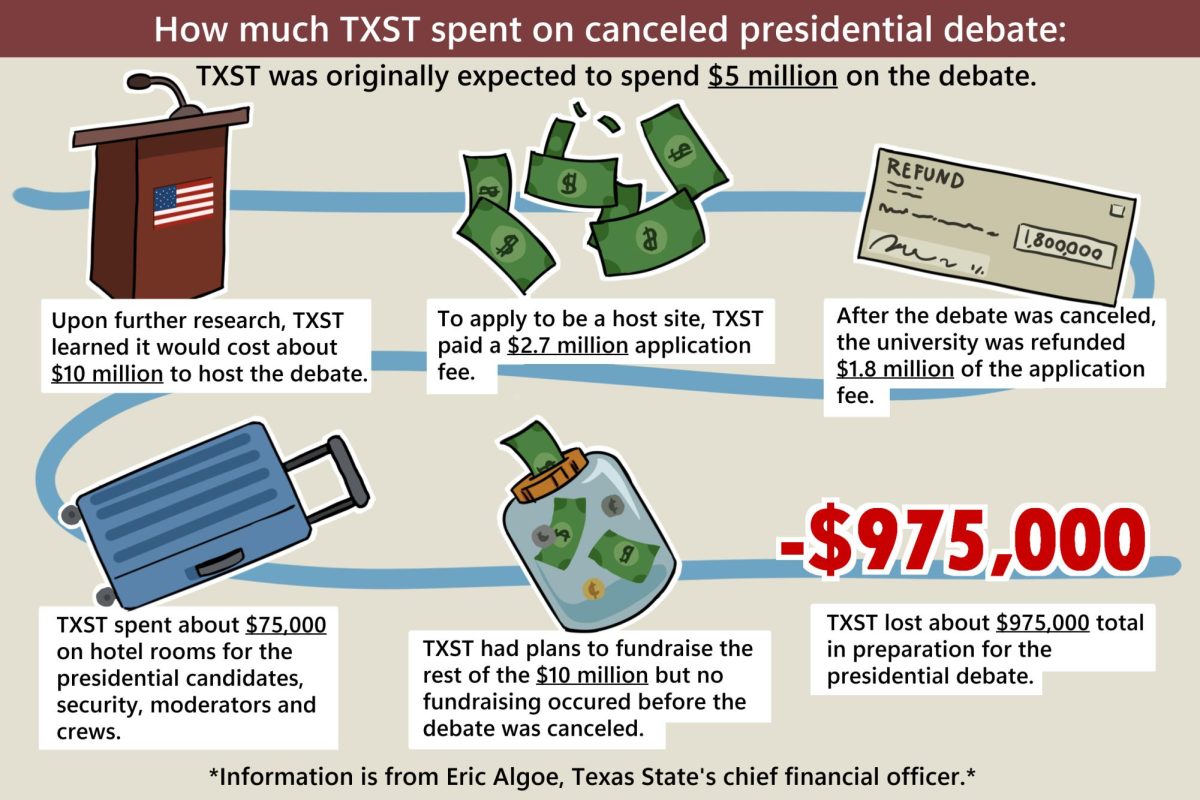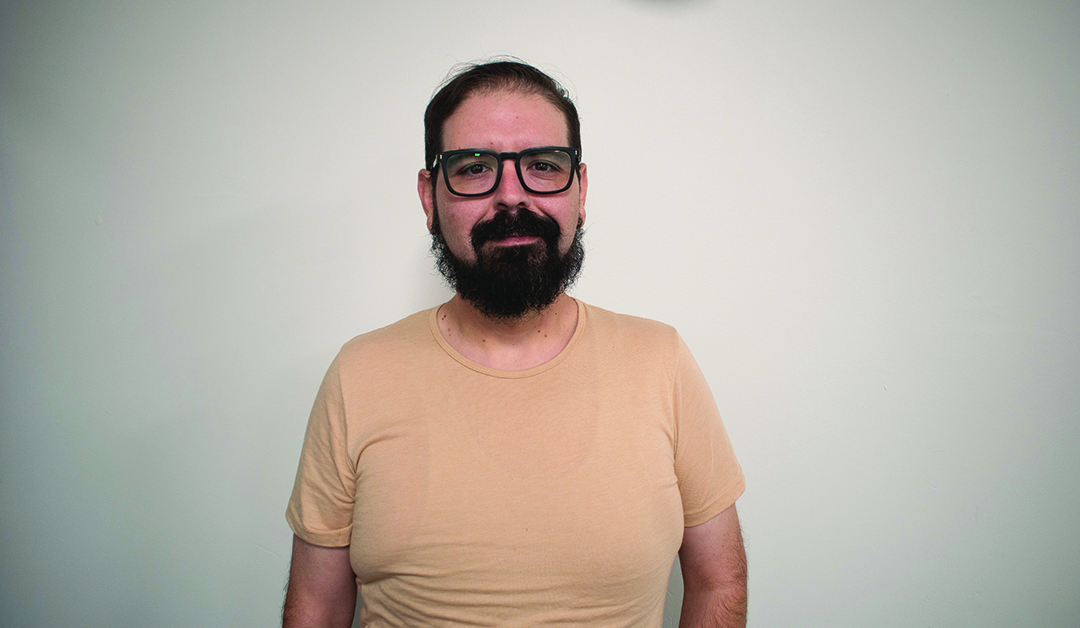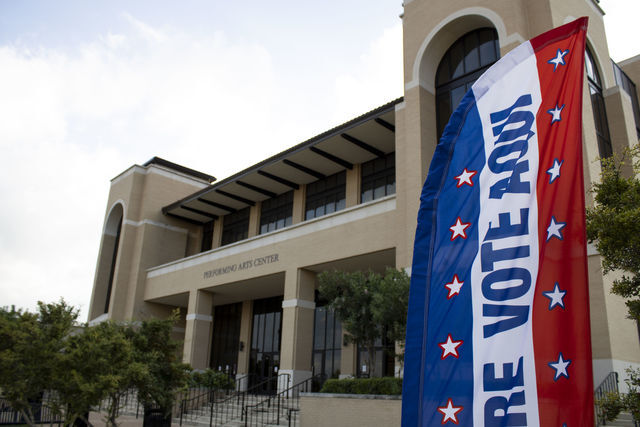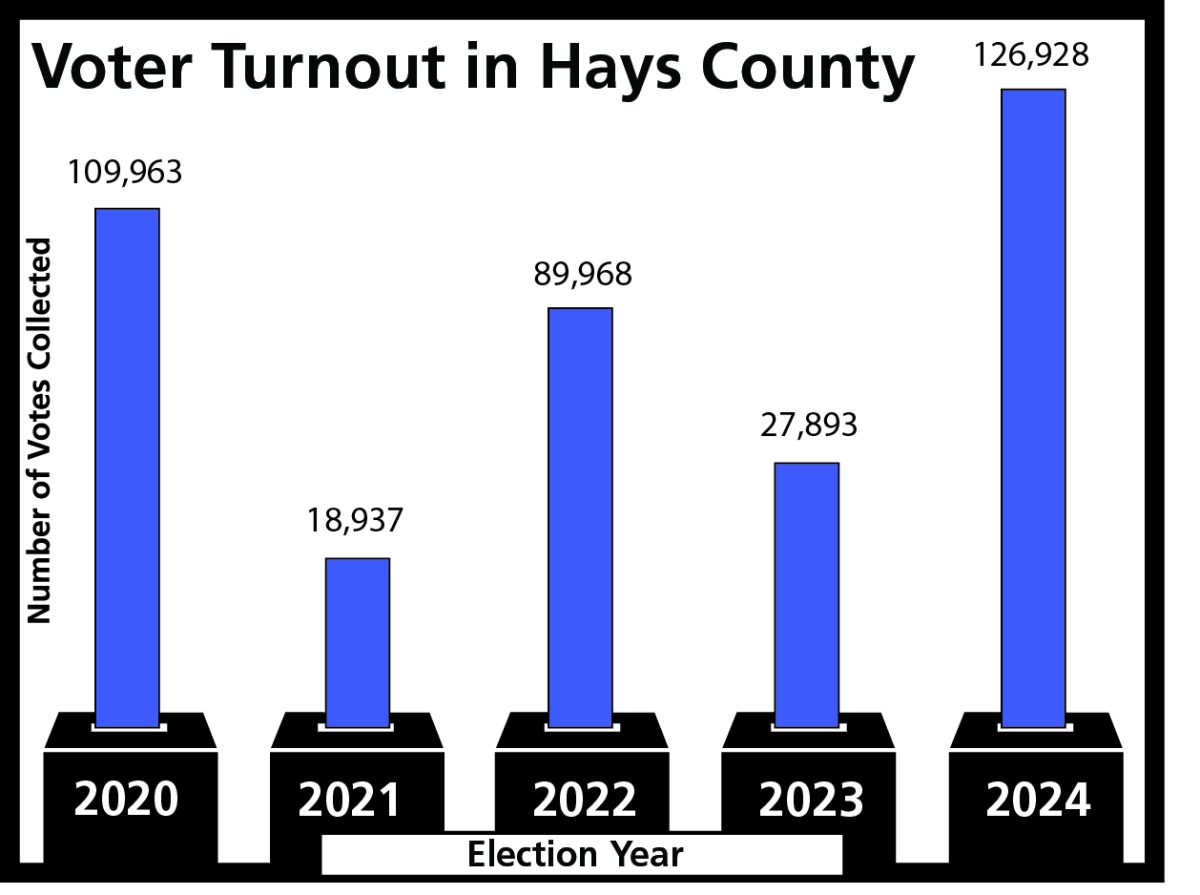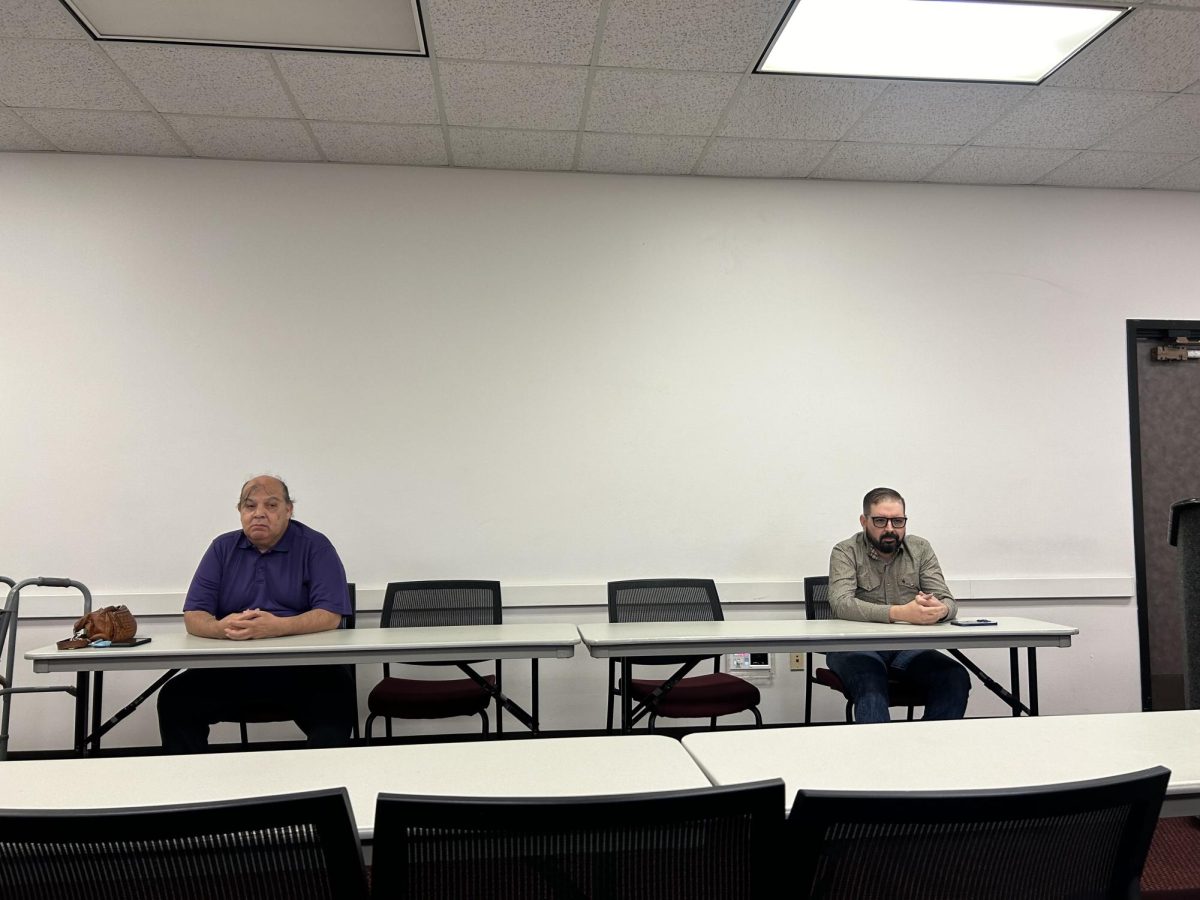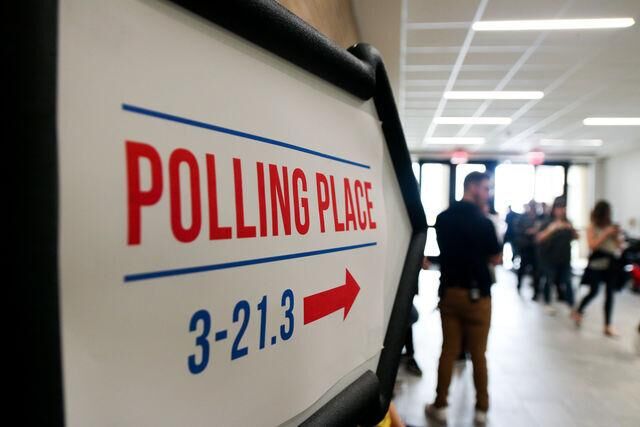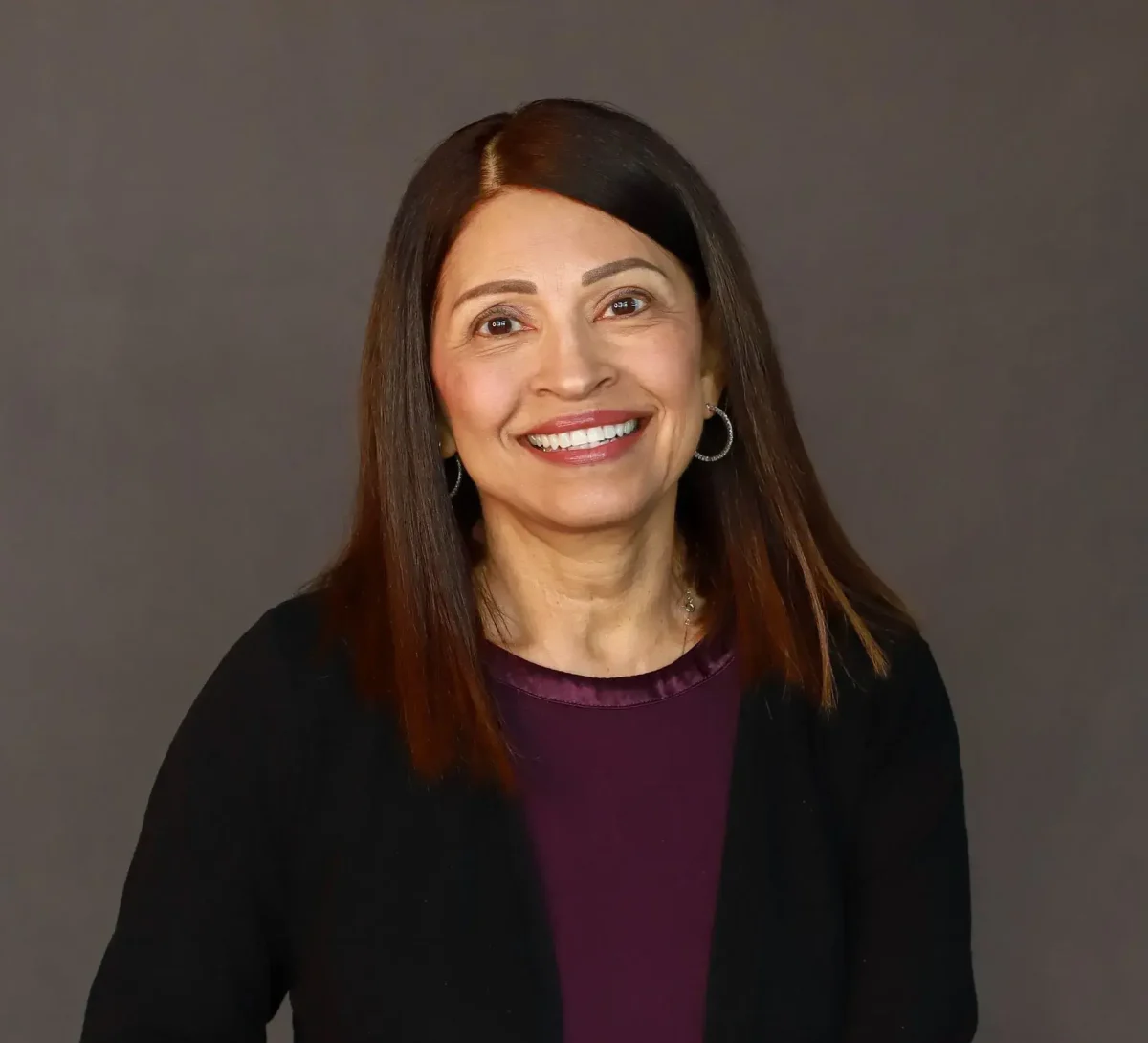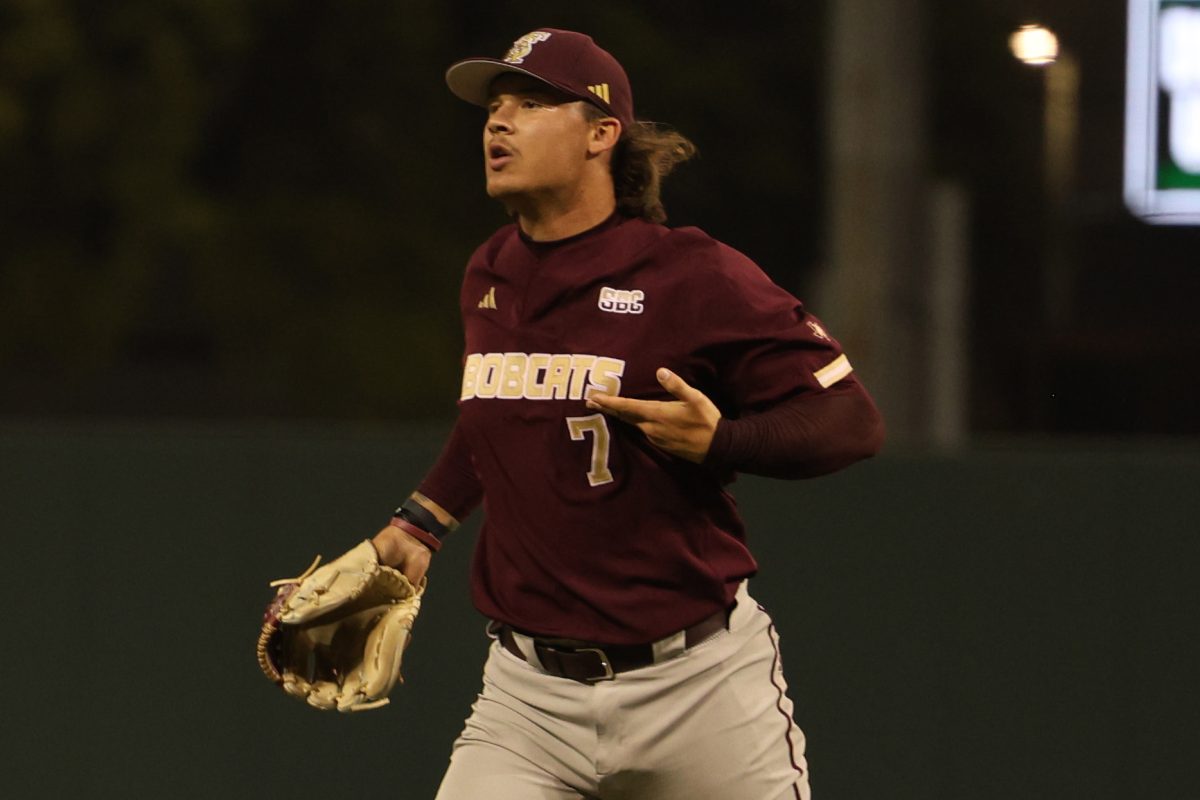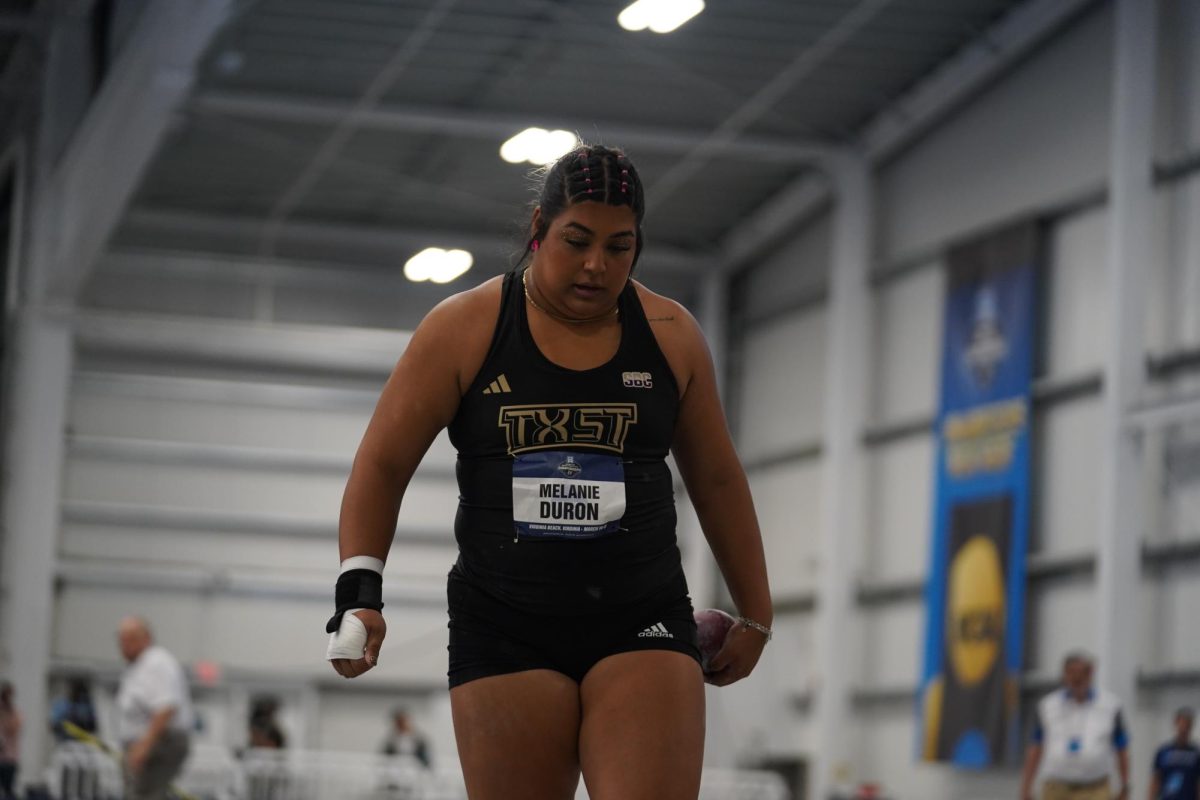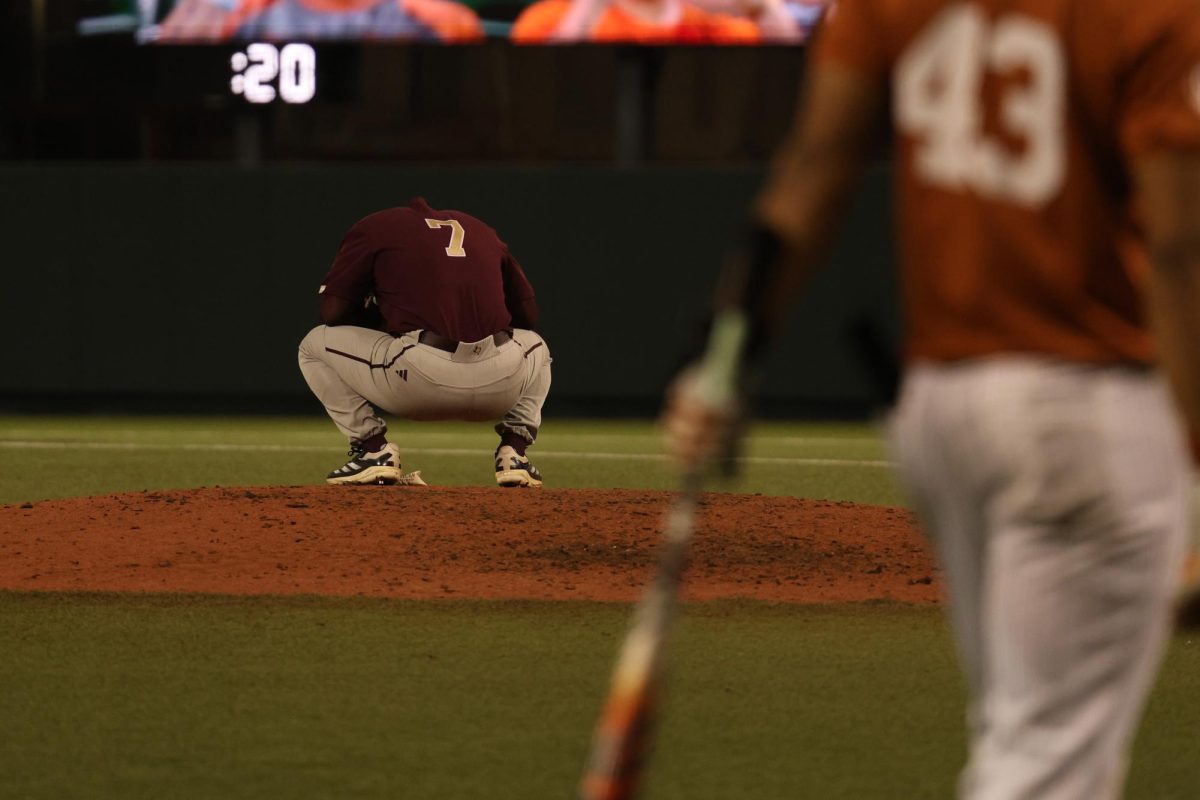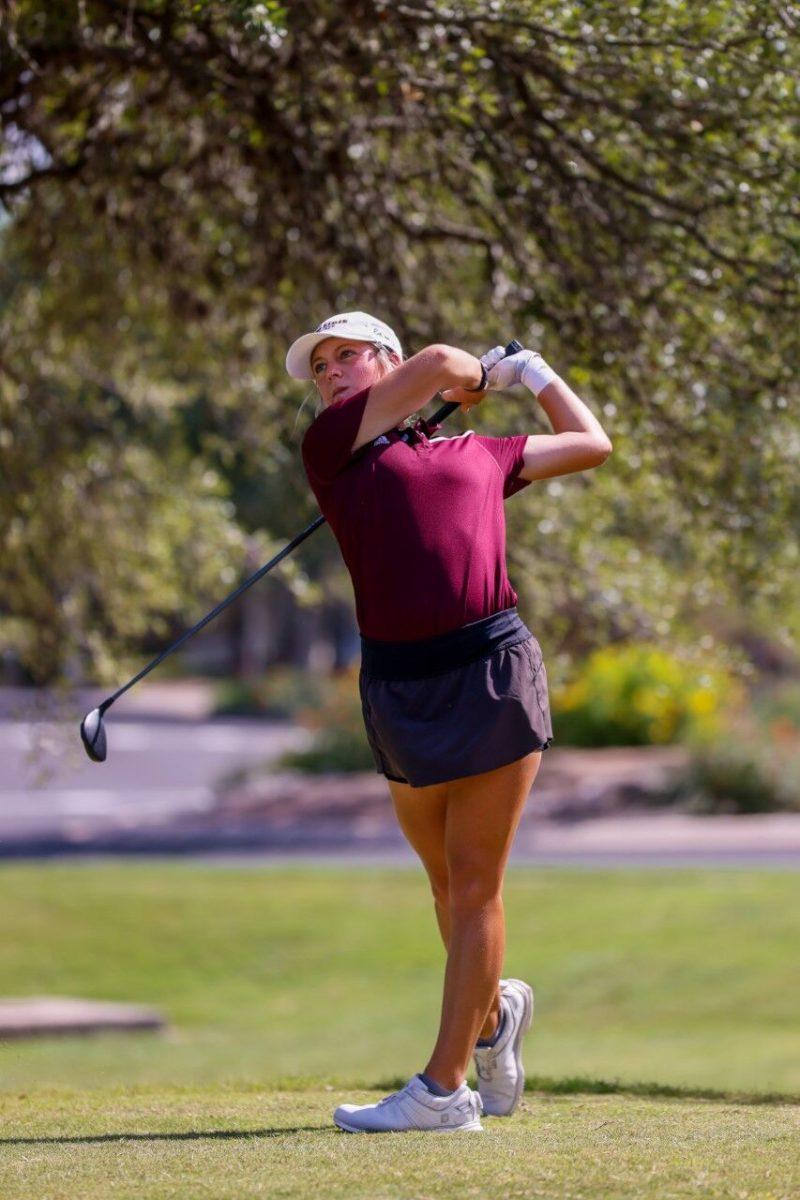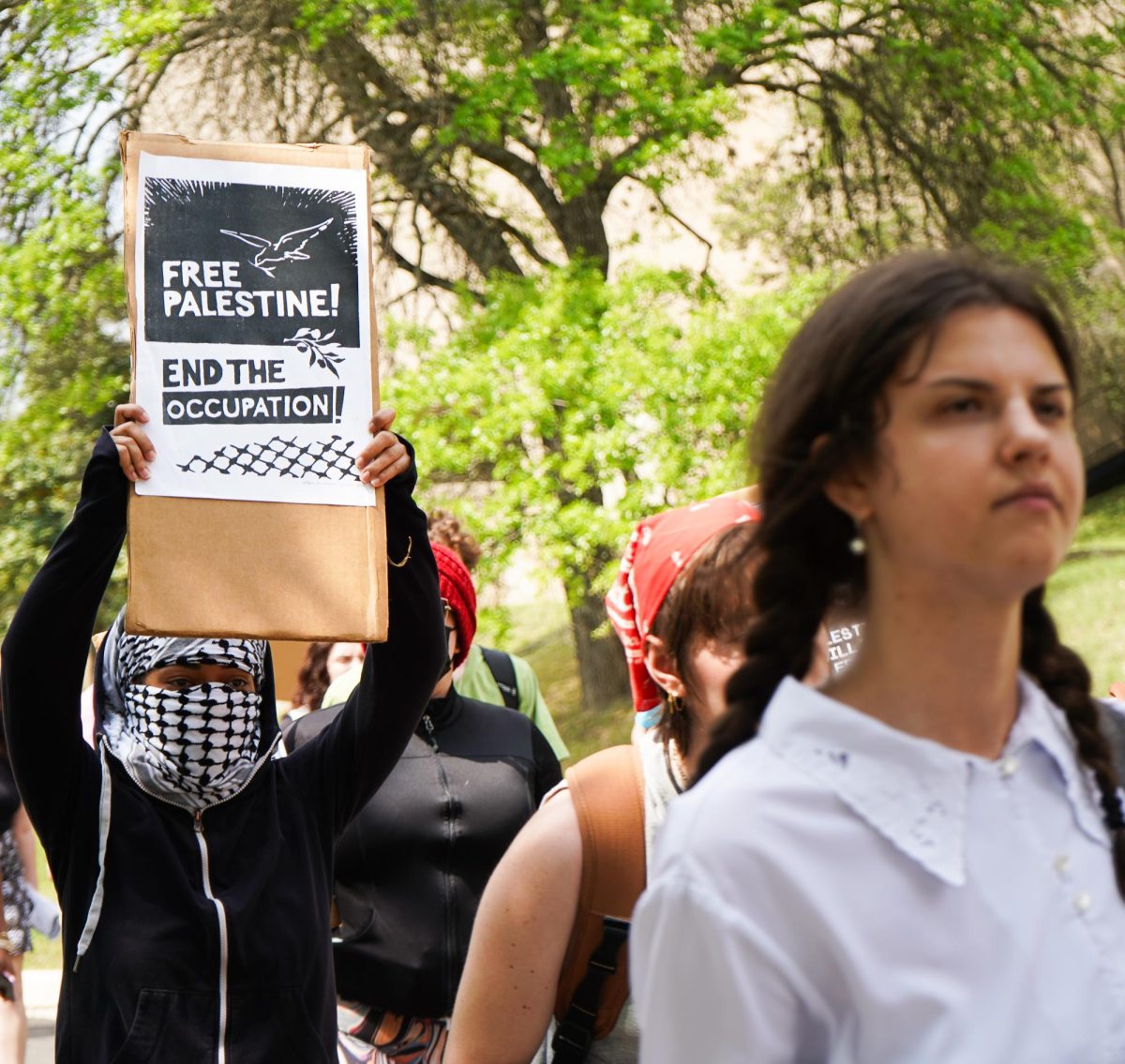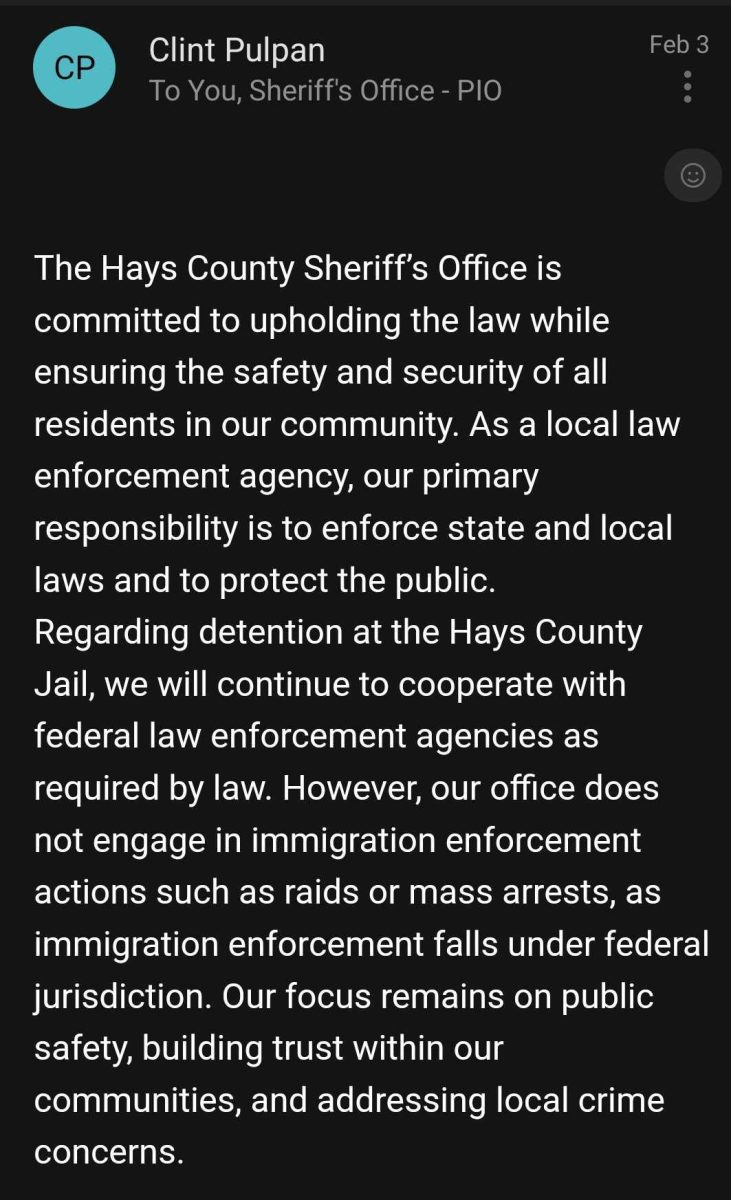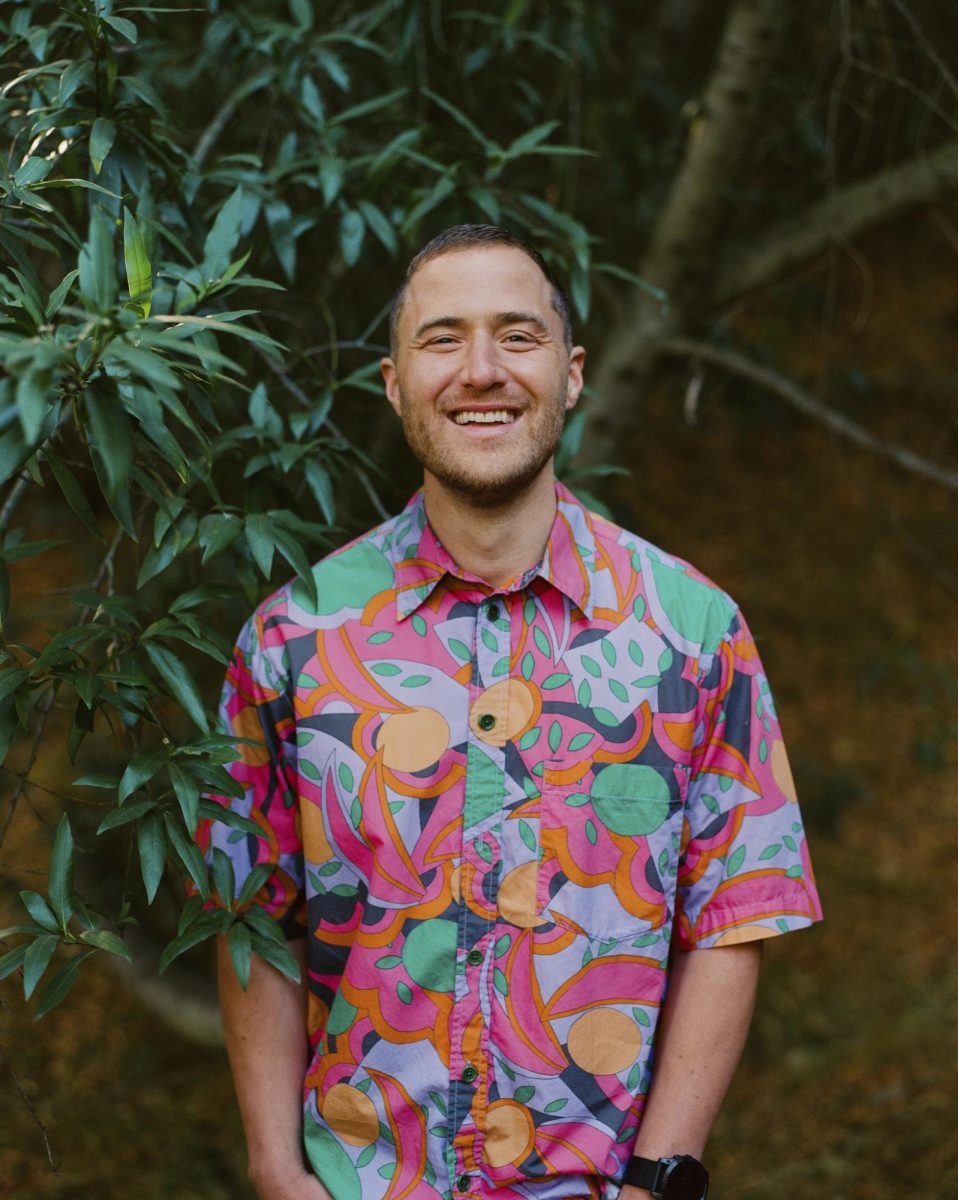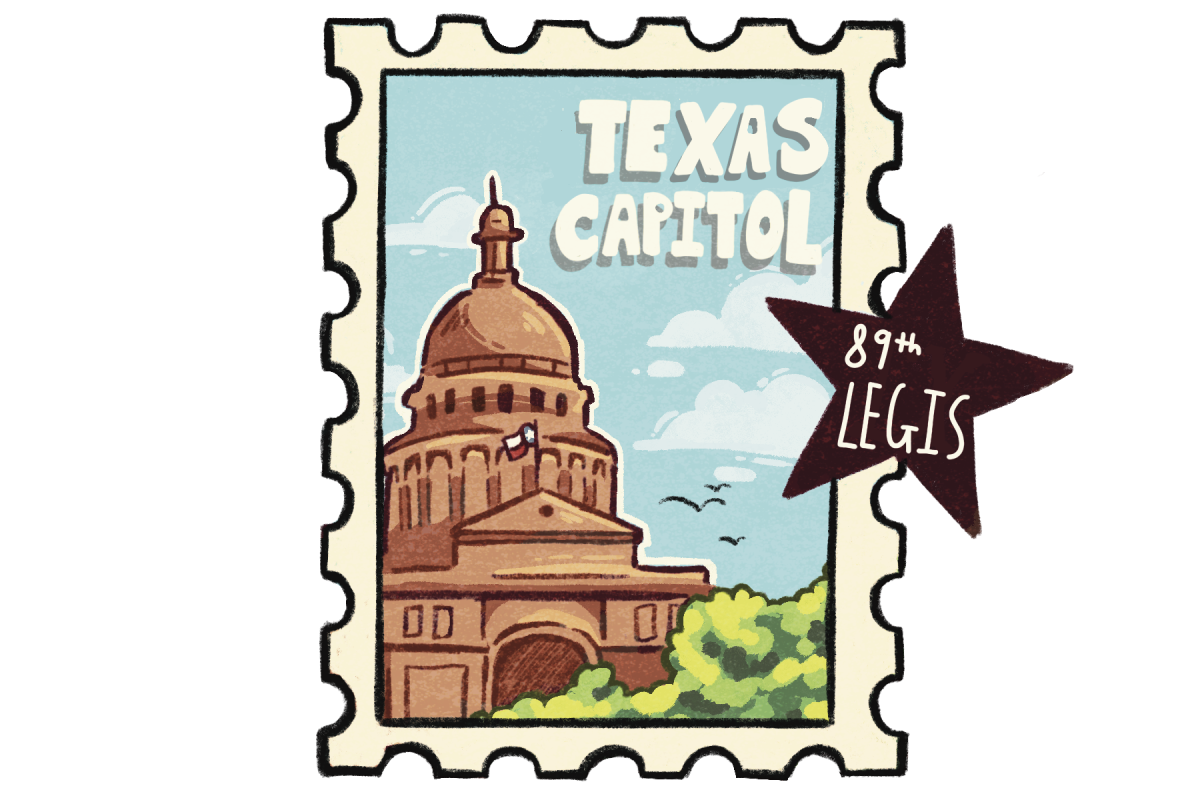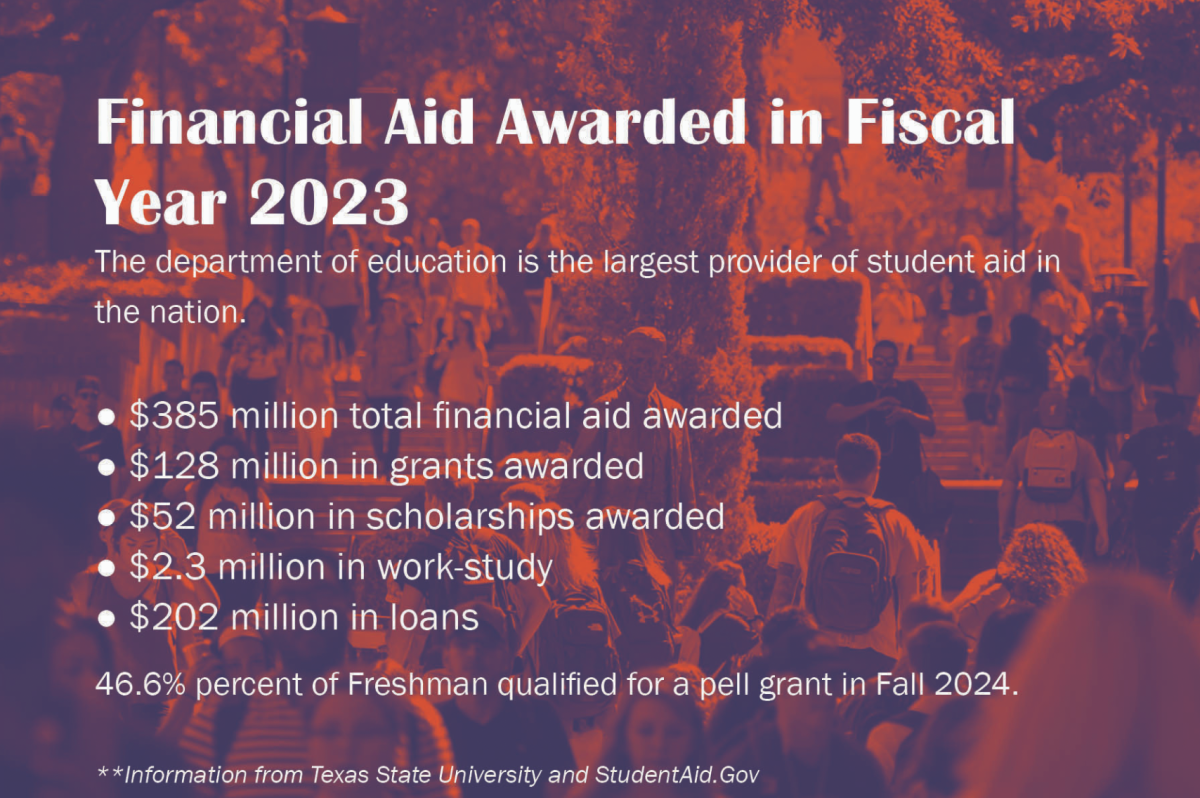Editor’s Note: In the print version of this story, the first paragraph incorrectly stated Texas State lost $975,000 million in preparation costs. While the rest of the story uses the correct figure, that number was supposed to be $975,000.
Texas State University lost approximately $975,000 in preparation costs to host a presidential debate, which was ultimately canceled in June.
Texas State announced it was scheduled to host the first of three presidential debates this election season. Three months before the Sept. 16 debate, the Commission on Presidential Debates (CPD) released Texas State from its contract, following the Biden-Harris campaign refusing participation in all CPD-hosted debates.
Although the university first estimated the cost to be $5 million, after further examination through other universities, the final estimated cost to prepare the site to host the debate was about $10 million, according to Eric Algoe, executive vice president for operations and chief financial officer.
Algoe said the university planned to raise funds for the debate through state grants and donations but halted those efforts in June. Texas State canceled the fundraising campaign before securing the necessary money.
“We were planning to do significant fundraising,” Algoe said. “There’s also a grant program through the Office of the Governor that helps Texas communities bring in large-scale events like this that we had submitted an application for. Most of the funding we hoped to have used for this never really materialized because we found out [the debate] wasn’t going to happen.”
The university was going to spend this $10 million on hotel rooms, temporary and permanent facility changes and upgrading technology, Algoe said.
To apply to be a presidential debate host site, Algoe said Texas State also paid CPD $2.7 million. After the debate was canceled in June, they were refunded $1.8 million. Even though the debate was canceled with three months to spare, Texas State had already spent about $75,000 on hotel rooms for the candidates and CPD staff. However, according to Algoe the hotel expenses are still being negotiated.
“The [CPD] really doesn’t give you a lot of detail in terms of what it takes to host a debate,” Algoe said. “We were guessing when we came up with the $5 million number, an educated guess based upon conversations with other universities that had [hosted debates] in the past.”
Although the school lost about $975,000, including the $900,000 non-refunded amount for the host application and $75,000 for the hotel rooms, Algoe said the debate helped the school gain experience and traction.
According to Algoe, the original announcement that Texas State would host the first of three presidential debates in November 2023 reached over 5.3 billion worldwide media impressions.
Texas State planned 12 political science and mass communication courses during the summer and fall semesters to highlight the process of the debate. Students were still able to enroll in those classes, however their content changed.
Debra Price, assistant professor of practice and PR program coordinator, wrote the MC 4320 and MC 4376G classes shifted focus in an email statement to The Star in June.
“Students are now working on communication campaigns to encourage civil engagement among students on campus,” Price wrote. “Our goal is to help inform and empower students to participate in civic engagement and play a role in shaping their communities.”
Although the debate cancellation cost Texas State close to $1 million, for some students the main loss was the experience.
Averyann Guggenheim, president of the College Democrats at Texas State, said the debate would have been a good opportunity for new voters to get involved in politics through the campus.
“I was just disappointed,” Guggenheim said. “I thought it’d be a great opportunity for incoming freshmen to possibly get the chance to see or be a part of this big political event. It’s so important for incoming freshmen to learn how to be a good voter and why voting is so important.”
For Carly French, president of the College Republicans at Texas State, the cancellation dulled the excitement toward the election.
“I feel like a lot of students were really looking forward to the possibility of having the prospective presidents come to our campus just for exposure and for the experience of students ourselves,” French said.
In a written interview with The Star, Lisa Lloyd, Texas State’s vice president and chief of staff also wrote that the university’s greatest loss was the experience the students would have received.
“The debate would have given students the opportunity to experience firsthand political processes unfolding,” Lloyd wrote. “It would’ve given them a chance to observe the complexities of a presidential debate, and how it shapes public discourse.”
Mary Brennan, dean of the college of liberal arts and member of Texas State’s presidential debate committee said media professionals would have been on campus leading up to the debate.
“I can’t even think of the national reporters going around campus, taking pictures of Sewell Park and talking to students on the quad,” Brennan said.
Brennan said the biggest part of the experience for students would have been those who would have gotten to volunteer in the arena.
“I would say we might be interested in doing it again in the future,” Algoe said. “That decision hasn’t been made and there’s no offer out for us to do that but I think that’s the best measure of ‘did it go well or not’.”



